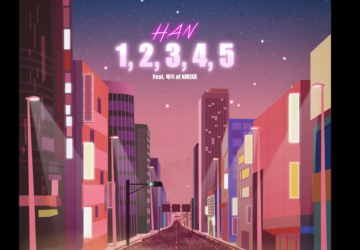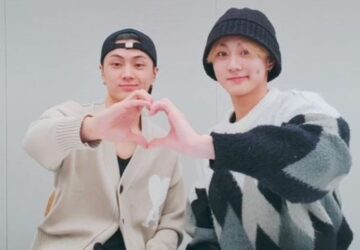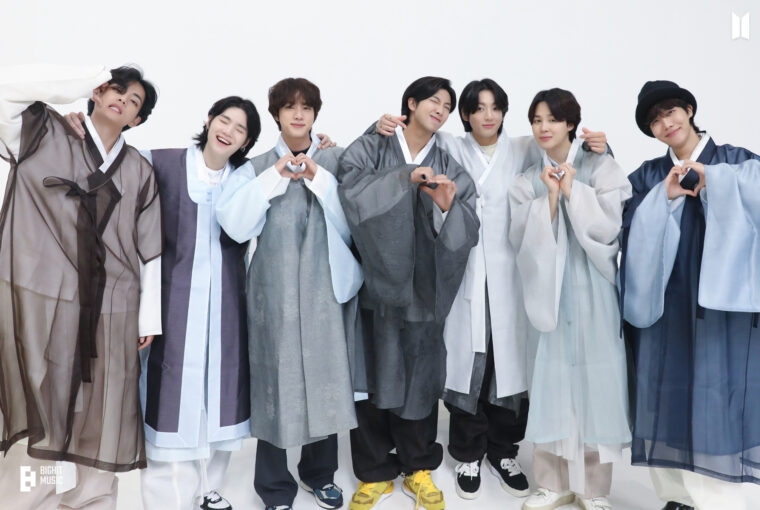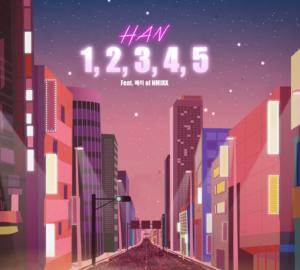A concept change can prove to be a huge risk for a lot of groups, not to mention their companies. But as with anything else, huge risks, if executed properly and with a huge dose of luck, can yield huge pay-offs as well. Not convinced? Here are three groups that prove this point.
Apink
The eternal fairies of the K-pop world, they’re one (if not the only) of the few K-pop girl groups that maintained a fairly sweet and innocent girl-next-door image that harkens first generation K-pop groups like Fin.K.L and SES. Actually during the second generation of k-pop groups, the girls actually all start off adapting the sweet and innocent image, as we talked about earlier with Girl’s Day. And as we also mentioned earlier, most girl groups “graduate” into something more relatable to audiences – in other words, trendy. And in this generation, groups like EXID, AOA, and Girl’s Day hopped on to what was then the fad among girl groups, the sexy bandwagon.
Apink proved different. They clung to the innocent concept throughout much of their careers and were rewarded for it. Actually, there were a few breaks in their adherence to their bread-and-butter concept – their 5th single, Hush, was definitely not the same saccharine image their girls have presented so far from Mollayo to April 19th, their first anniversary single. There was also LUV, which up to this day has maintained the record for being the girl group song with the most music show wins at 17, a song about a girl longing for her gone love. Now, what’s so sweet and innocent about that?
But even with the subtle changes concept-wise of these songs, it cannot be denied that there’s still that wholesomeness that is distinctively Apink. That the group’s forte is really with the sweet and innocent was fortified when they released the mellow and in American radio terminology, the adult-contemporary sounding Only One, which severely underperformed, only for the group to return to form in the Korean music charts with the overly catchy Five, which can also be described as, you guessed it right, sweet and innocent, complete with cakes, ribbons, and filters in pastel colors on the song’s music video.
#Apink Dilemma's first anniversary is coming up, I'm not ready. pic.twitter.com/2BEXvkMxPL
— Legendary Apink (@LegendaryApink) January 16, 2023
Thus, Apink was faced with the dilemma (a bit of a pun) after their seventh anniversary whether they should forge on with their teenybopper image even when the members are already in their mid-20s and critics are already dismissing them as monotone. The girls took a gamble with 2018’s I’m So Sick, which ushered in a new era of still catchy but more sophisticated concepts for the group. While this reportedly had a lot of k-Pandas leave the fandom, this concept change was also how the group was introduced to a new generation of fans that were already more accustomed to more “aggressive” concepts being pushed by groups like Red Velvet, ITZY, and Blackpink.
I guess you win some, you lose some, right? In the case of Apink, it was you lose some, you win a lot, as their succeeding releases, Eung Eung (%%) and Dumhdurum, which had the group fully transitioned to the mature/elegant concept trajectory, continued the group’s success, with the latter topping the Melon charts, a feat Apink last achieved in 2015 with Remember.
BTS
You read that right. On the road to being the most famous musicians in the world and the 21st-century version of The Beatles, BTS was on the brink of nugu-dom. Some attributed this to a number of factors such as not having a viral hit in Korea, not coming from the big 3 (JYP, YG, SM), not having a famous member before their debut, being pitted against SME’s EXO which definitely put all other groups including BTS in the dust, not having big TV or variety show personalities, and not coming from an audition show, which for a time, was the most popular way to introduce the Korean public to a group (from Twice to Winner, iKon, and Wanna One, even Momoland, remember?). But then, related to the first reason and perhaps the most popular theory of BTS’ lack of a breakthrough in the Korean market are those depressingly angry songs.
The boys since their debut adhered to this angry, anti-establishment, angsty, bordering on emo image that obviously was not a hit with the Korean public. No More Dream, We are Bulletproof pt.2, N.O, Boy in Luv, Just One Day, Danger, War of Hormone – the first two years of the group showed their enormous talents as composers and performers, but seriously, who wanted to be bombarded with the issues and disappointments of youth when you have the boys from SM Entertainment declaring they want to growl to protect their girl at one moment and asking their girls to Call Me Baby the next?
Two songs released one after the other changed BTS‘ image and fate for eternity. I Need U and Dope, from The Most Beautiful Moment in Life, Part 1 turned the boys from angry young men to dreamy guys the world (and soon, Korea) would readily embrace. In I Need U, the feeling was more longing for a girl and less about anger at societal norms. In the music video, the boys use less black and were even filmed with a dreamy (read: hazy) filter and not in stark black with boys in man-liner. More of the boys hanging out in abandoned rail carts and gas stations. Obviously, the MV still showed the boys setting things on fire, crying, and stabbing each other, but everything was somehow lighter, as even these starkly violet were interspersed with shots of the boys enjoying a joyride, throwing french fries at each other, and laughing. The Korean public started taking notice, with the song peaking at number 5 in the Gaon (now Circle) singles chart.
Yes, 2013 was 10 years ago.
No, we’re still not over these iconic songs from that year:
‘I GOT A BOY’ – Girls’ Generation
‘Growl’ – EXO
‘What’s your name?’ – 4Minute
‘No More Dream’ – BTS
‘첫 사랑니 (Rum Pum Pum Pum)’ – f(x)— Spotify ❤️ K-Pop (@SpotifyKpop) January 13, 2023
On the other hand, the boys finally got their viral hit, not in Korea, but internationally, though the music video for Dope. While the song still had the trademark youth angst, international audiences who didn’t understand a word of Korean (apart from the lines “I don’t wanna say yes,” “I gotta make it,” and “higher higher,” among others) were smitten with the choreography of the MV, particularly in the chorus where the boys, dressed up in different uniforms, danced in perfect sync, which at that time was an alien concept among international music fans. Soon, content creators (read: “video reactors”) were caught in the hype of these Korean boys dancing so sharply it can cut you from your phone screen, and slowly but surely, we witnessed the birth of international sensations.
Suffice it to say that the change from the all-black, eyeliner era to a less angry and more relatable image for the Bangtan boys did them tremendous favors. Just like Apink, even with this image/concept change, BTS has somehow been successful in carrying a distinct flavor in their music through the years. If it’s a continued sense of wholesomeness for Apink even with their elevated sophistication, it’s the exuberance of youth for BTS (always alluded to their songs and album concepts), although nowadays, they’ve expanded their range to include loss and freedom as well, not just societal pressures as mirrored in their early years. When the group decides to reconvene for a complete group release maybe five years from now, shall we anticipate another concept change, this time to adulthood and their experience in transitioning from a group with members in their 20s to a group with members in their 30s? We cannot wait!
Dreamcatcher
Now, this is a tricky one. That’s because Happyface Entertainment (a company not a stranger to concept changes with their former group Dal Shabet) not only changed the concept and sound with Dreamcatcher, they actually re-debuted an entire group. Like starting all over again, tabula rasa, clean slate. So, you may say, is that a bit of a cheat since the company “created” an entirely new group? Not at all, since the old group had the same members, so what they did was change the name, changed the group’s image/concept, and sound. Thus, in relation to the group, it is really a concept change, and then some.
So, for new K-pop fans that know Dreamcatcher from the start as a group that has released rock tracks and now questioning when the group actually had a concept change, here’s a quick fact: They did not actually debut as Dreamcatcher. In September 2014, Happyface debuted a new group named Minx on M Countdown with the song Why Did You Come to My Home. The following year, they released their first EP Love Shake, with a lead single of the same name. Even in the group’s promotions, the single (and therefore the group) was marketed as a “joyous song” that “goes well with summer”. Truth be told, it seemed that the company was just doing a bit of cost-cutting as Love Shake is only a remake of the song Love Shake from labelmate Dal Shabet‘s Bang Bang album.
So yes, that was a blatant money-saving move from Happyface, which didn’t really do any favors for Minx as the song didn’t chart even with its bright and cheery concept. This was during the time Apink dominated the charts with their successive NoNoNo, Mr. Chu, and LUV releases, which goes to show that the Korean public still had a taste for bright and innocent girl group concepts. It just came down to the group executing them and if they were executed properly, I guess.
So, with Minx‘s lackluster debut, Happyface deemed a massive reboot was in tow. After all, the company was not used to flopping this badly. Dal Shabet in 2011 sold close to 1.3 million units of their debut single Supa Dupa Diva. But then, what were they thinking, debuting a group by giving them a b-side of their established group? But then, I digress.
In November 2016, the company revealed that Minx would re-debut under the name Dreamcatcher with two additional members, Handong and Gahyeon joining Minx members JiU, SuA, Siyeon, Yoohyeon, and Dami. The group re-debuted with the release of their single album Nightmare and its lead single Chase Me the following year. Suffice it to say the overhaul to a rock-based, anime opening/closing theme for the girls paid off, big time!
8 years ago, MINX debuted with "Why Did You Come To My Home?"#MINX #밍스 pic.twitter.com/bYtUjoKNdm
— that day in K-Pop (@thatdayinkrpop) September 17, 2022
Want proof? Dreamcatcher sold more than 142,000 units of their Apocalypse: Save Us album in the first half of 2022, close to 120,000 of their EP Apocalyse: Follow Us in the same year. Their latest MV for Vision released in October last year has raked in more than 21 million views on YouTube. The group still kills the post-apocalyptic RPG end-of-the-world concept on both the sound of the song and the music video and no other group (except maybe soloist AleXa) has ventured into this concept. This means Dreamcatcher has a monopoly on this niche image. And those record sales! More than 100,000+ copies sold by a girl group, not from the Big 4. A successful concept overhaul is an understatement, indeed!
See? Concept changes may be seen as risks, but when properly executed, can return big dividends to a group, not to mention the company that handled these changes. Stay tuned for concept changes gone horribly wrong, including one done by IST, which handled Apink’s chef’s kiss concept revamp.
Featured Image Credit: BTS Official Twitter







